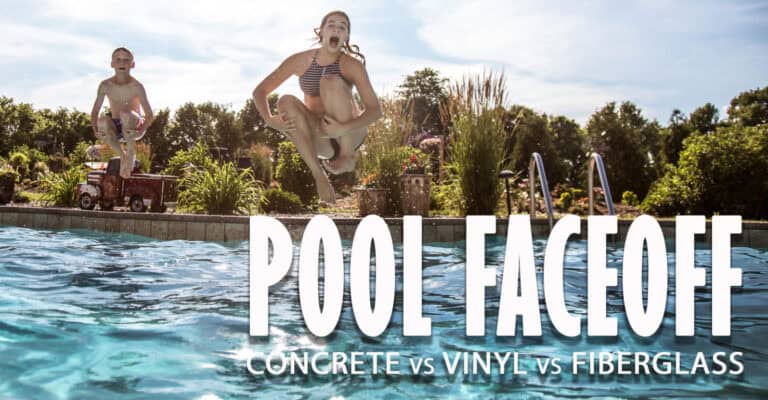Pool Face Off: Concrete Vs Vinyl Vs Fiberglass
April 15, 2020
Congratulations. You have finally decided to pull the trigger on the big pool install in the backyard—the new centerpiece of your landscaping, and your next big investment. Now you are likely deciding between the big 3 types of in ground pools: concrete, vinyl, and fiberglass. Let’s break down some of the key points between these…

